Today’s Current Affairs: 13th May 2023 for UPSC IAS exams, State PSC exams, SSC CGL, State SSC, RRB, Railways, Banking Exam & IBPS, etc
Table of Contents
Central Electricity Authority : Peak Power Demand
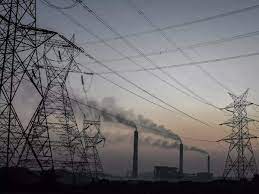
The Central Electricity Authority has projected a peak power demand of 335 gw and 2.28 trillion units of electricity for the year 2029-30.
- The Central Electricity Authority (CEA) is a statutory organization.
- It was constituted under Section 3 (1) of the repealed Electricity (Supply) Act, 1948 and continued under Section 70 of the Electricity Act, 2003.
- It was established as a part-time body in 1951.
- It became a full-time body in the year 1975.
- As per Section 70 (3) of the Electricity Act, 2003, the authority shall consist of not more than 14 members
- This includes its chairperson and Not more than eight of them shall be full-time members to be appointed by the Central Government.
- The CEA is headed by a chairperson who, is the Chief Executive of the authority.
- He oversees largely the development of the power sector in the country.
- It advises the government on matters relating to the National Electricity Policy (NEP).
- It formulates short-term and prospective plans for the development of electrical systems.
Monlam Chenmo Festival : Ladakh

The annual five-day-long ‘Monlam Chenmo’ Festival, began recently in Ladakh.
- Monlam Chenmo is an annual five-day-long Great Prayer Festival of Ladakh.
- It is a mass prayer camp by Buddhist monks and nuns for world peace and happiness.
- The annual Mass Prayer is resuming this year after three years of discontinuation due to Covid.
- The event is being organised by the All Ladakh Gonpa Association.
- It is a major annual prayer of the Sangha Community of Ladakh gathered at one platform.
- The Festival falls on the 21st to 25th days of the third month of the Tibetan lunar calendar.
- It is being held since 1991.
Right To Walk : Punjab Has Become The First State In India To Enforce
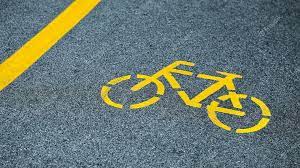
Punjab has become the first state in India to enforce the “right to walk” by making it mandatory for road-owning agencies, including the NHAI, to provide footpaths and cycle tracks in all future expansion of roads and construction of new ones.
- Amid consistent rise in deaths of pedestrians and cyclists, Punjab has taken the lead among the states and UTs to implement the ‘right to walk’ by making it mandatory for all road-owning agencies, including the NHAI, to provide footpath and cycle tracks in all future expansion of roads and construction of new ones.
- The state government has issued these directions following two court orders after PILs were filed at Punjab and Haryana HC and another in the Supreme Court.
- As per a communication from Punjab chief secretary Vijay Kumar Janjua to Punjab government’s traffic adviser, Navdeep Asija, “in future all expansions of existing roads and construction of new roads, a mandatory provision of cycle tracks and footpaths should be made by all road owning departments and agencies”.
State Robotics Framework:
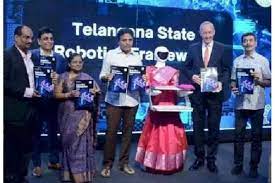
Telangana has become the first state in the country to launch a state robotics framework with a vision to create a sustainable robotics ecosystem.
- It intends to leverage robotics technology in key domains, including agriculture, healthcare, industrial automation, and consumer robotics.
- The ultimate goal of the framework is to become a leader in robotics and promote a sustainable robotics industry in Telangana
- Telangana Robotics Innovation Centre (TRIC) will be established as an independent entity to implement the framework
- Robo park and robotics accelerator for start-ups will also be established.
Men’s World Boxing Championships 2023:

Prime Minister of India has conveyed his heartfelt congratulations to Deepak Bhoria, Hussamuddin, and Nishant Dev for their remarkable achievement in the Men’s World Boxing Championships held in Tashkent.
- Deepak Bhoria (51kg) won silver, Hussamuddin (57kg) and Nishant Dev (71kg) won bronze medals in the semifinals.
- The Men’s World Boxing Championships, taking place from April 30 to May 14, 2023, in Uzbekistan, is a prominent event that brings together more than 400 boxers from across the globe, competing in 13 weight categories to claim victory and honor.
- It is Organized by the International Boxing Association (IBA) and the Boxing Federation of Uzbekistan, with the support of the Government of Uzbekistan, the tournament not only showcases top-notch boxing skills but also serves as a platform to celebrate the vibrant culture and warm hospitality of Uzbekistan.
SAKSHAM : Learning System
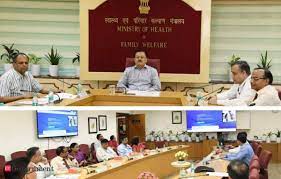
The Union Health Ministry has introduced the SAKSHAM (Stimulating Advanced Knowledge for Sustainable Health Management), a Learning Management Information System (LMIS) of the Ministry of Health and Family Welfare.
- SAKSHAM serves as a comprehensive digital learning platform for offering online training and medical education to all healthcare professionals across the country.
- Developed By: National Institute of Health & Family Welfare (NIHFW).
- The platform aims to ensure inclusive capacity building among health professionals, ranging from those working in rural and remote primary health centers to those in metropolitan cities’ tertiary care and corporate hospitals.
- Currently, SAKSHAM: LMIS hosts over 200 public health and 100 clinical courses, accessible through online mode.
- Saksham will be developed as a centralized resource repository for training and teaching material.
- It will also act as a central database of trained healthcare professionals in the country.
Business & Human Rights Resource Centre (BHRRC) Report:

Business & Human Rights Resource Centre (BHRRC) has released a report titled “Human rights defenders & business in 2022: People challenging corporate power to protect our planet”, seeking to underscore the number of attacks against activists seeking to protect their “Communities, Environments, and Livelihood” from the impact of Irresponsible Business Practice.
Findings of the Report:
- Globally, there are 4,700 attacks on Human Rights defenders raising concerns about harmful business practice from January 2015-March 2023.
- Of them, 555 were in 2022, “revealing that on average more than 10 defenders were attacked every single week for raising legitimate concerns about irresponsible business activity.
- Mining has remained the most dangerous sector for defenders, with 30% of all the attacks in 2022 being linked to it.
- The sector is even more dangerous for Indigenous defenders — 41% of attacks against Indigenous peoples in 2022 related to mining.
- The people fighting against human rights violations and environmental crimes by corporations faced a multitude of attacks, with 86% of them being non-lethal. However, these are often precursors to lethal violence.
- Non-lethal attacks are generally left uninvestigated and unpunished, which can have a chilling effect on the work of defenders and promote impunity that feeds further violence where defenders persist in their critical work.
- Judicial harassment, which includes arbitrary arrest, unfair trial and strategic lawsuits against public participation, was the most common form of attack against protesters across the world.
- Nearly a quarter of the attacks were against women who challenged “both corporate power and patriarchal gender norms”.
- Many of these attacks were online threats and smear campaigns that caused them immense long-term psychological harm.
- These tactics are meant to stigmatise, isolate and silence women defenders.
- India recorded the 2nd highest number of attacks on defenders protesting harmful business practices in 2022. India saw 54 such incidents of attacks (affecting one or more individuals).
- The only country to perform worse than India was Brazil, with 63 such incidents.
- Mexico, Cambodia, and the Philippines followed with 44, 40, and 32 attacks, respectively.
- India also had the greatest number of companies linked to attacks.
CH-47F Chinook Helicopter:

The U.S. State Department recently approved the potential sale of CH-47F Chinook helicopters and related equipment to Germany.
- CH-47F Chinook helicopter is the U.S. Army’s primary heavy troop and supply transport aircraft.
- It is an advanced multi-mission helicopter.
- It is manufactured by American aerospace and defence firm Boeing for the US Army and international defence forces.
- It is used for the transportation of troops, artillery, supplies, and equipment to the battlefield.
- India has about 15 CH-47 Chinook helicopters.
- It contains a fully integrated digital cockpit management system.
- It advanced cargo-handling capabilities that complement the aircraft’s mission performance and handling characteristics.
- It has a monolithic airframe with vibration reduction.
- Maximum Speed: 296 kmph
Yuva Pratibha – Culinary Talent Hunt

MyGov, in collaboration with Institute of Hotel Management, Pusa will launch – YUVA PRATIBHA – Culinary Talent Hunt on May 13, 2023.
- The purpose of this competition is to bring out the lost recipes and promote the culinary talents of young and aspiring chefs and home cooks.
- The aim to create awareness and increase the production and consumption of millet, the year 2023 has been declared as the International Year of the Millets by the United Nations.
- The fusion of millets in this competition provides a unique opportunity for participants to showcase their creativity and innovation in cooking with healthy and sustainable ingredients.
- This will create awareness of the contribution of nutri-cereals (millets) for food security and nutrition.
- The contest is open to the citizens of India within the age group of 18 to 40 years.
- The dish should be home-cooked, wherein 50 percent of the ingredients should be of millet.
Automated Return Scrutiny Module For GST Returns:
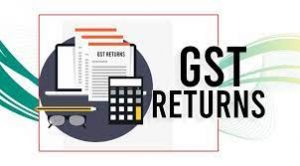
The Central Board of Indirect Taxes and Customs (CBIC) has rolled out the Automated Return Scrutiny Module for GST returns.
- This module will enable the officers to carry out scrutiny of GST returns of Centre Administered Taxpayers selected on the basis of data analytics and risks identified by the system.
- The module shows the discrepancies with the return to the tax officer and provides the tax officer with a way to interact with the taxpayer through the GSTN Common Portal for communication of discrepancies.
- The implementation of this Automated Return Scrutiny Module has commenced with the scrutiny of GST returns for financial year 2019-20.
6th Indian Ocean Conference: Theme
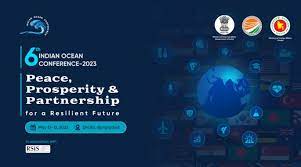
Bangladesh will host the 6th Indian Ocean Conference (IOC) scheduled to be held between May 12-13 in Dhaka.
- It will discuss aspects strengthening cooperation between the countries of the Indian Ocean region.
- The 6th edition of the Conference is being organised by India Foundation in association with the Ministry of Foreign Affairs, Bangladesh and S. Rajaratnam School of International Studies.
- Theme: “Peace, Prosperity and Partnership for a Resilient Future”
- The Conference endeavours to bring critical states and principal maritime partners of the region together on a common platform to deliberate upon the prospects of regional cooperation for Security And Growth for All in the Region (SAGAR).
- The first edition of the Conference was held in Singapore in 2016.
The Race To Net Zero: Accelerating Climate Action In Asia and the Pacific
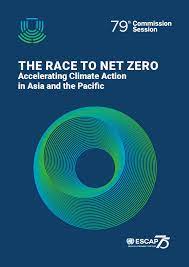
Recent study, “The Race to Net Zero: Accelerating Climate Action in Asia and the Pacific,” by the United Nations Economic and Social Commission for Asia and the Pacific (UNESCAP) has revealed that most countries in Asia and the Pacific are inadequately equipped to manage the growing threats posed by extreme weather events and natural disasters.
- The study emphasizes the lack of necessary data and resources to support adaptation and mitigation efforts in the region.
Key Highlights:
- Increasing temperatures in the region over the past 60 years have surpassed the global average, leading to more frequent and intense extreme weather events and natural hazards.
- Tropical cyclones, heatwaves, floods, and droughts have resulted in significant loss of life, displacement, health issues, and heightened poverty levels.
- Out of the top 10 countries most affected by such disasters, six are located in the Asia-Pacific region, causing disruptions in food systems, damaging economies, and undermining societies.
- Climate change and climate-induced disasters disproportionately burden marginalized and vulnerable groups, including women, children, the elderly, persons with disabilities, migrants, indigenous populations, and young people in vulnerable situations.
- The Asia-Pacific region is responsible for more than half of the world’s greenhouse gas emissions.
- Rapid development, coupled with a significant population, places the region at a critical position in the global climate crisis.
- Many low-lying cities and vulnerable small island states are located within the region, exacerbating the risks faced by these areas.
- Economic Costs of Climate Change estimates the annual average losses from natural and biological hazards in Asia and the Pacific to be around 780 billion USD.
- These losses are projected to increase to 1.1 trillion USD under a moderate climate change scenario and 1.4 trillion USD under the worst-case scenario.
- Current financing for climate action falls short of meeting the region’s needs and limiting global warming to 1.5°C.
Poshan Bhi Padhai Bhi:

The Union Minister for Women and Child Development introduced the government’s flagship program ‘Poshan Bhi, Padhai Bhi’, which will focus on Early Childhood Care and Education (ECCE) at anganwadis across the country.
- ECCE is an important component of Mission Saksham Anganwadi and Poshan 2.0 (Mission Poshan 2.0) and envisaged under the National Education Policy.
- The Ministry has allocated Rs 600 crore for the training of Anganwadi Workers (AWW) to effectively implement ECCE.
- The National Institute of Public Cooperation and Child Development (NIPCCD) will provide the training for anganwadi workers.
- The objective of the program is to transform anganwadi centers into not just nutrition hubs but also education-imparting centers.
- The ECCE program will prioritize education in the mother tongue, aligning with the principles of the New Education Policy.
- Through the changes introduced by the “Poshan bhi, Padhai bhi” ECCE policy, every child would be provided with at least two hours of high-quality pre-school instruction daily.




